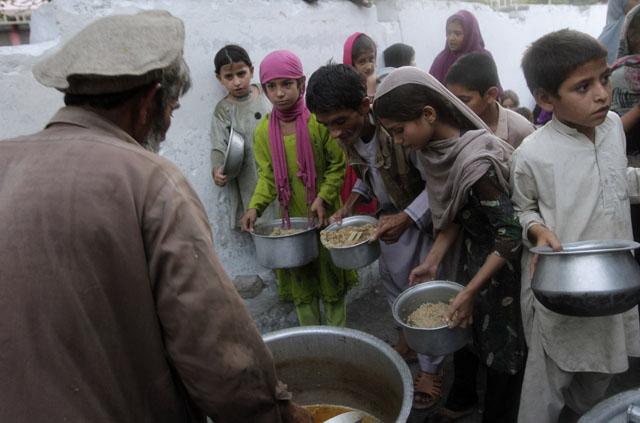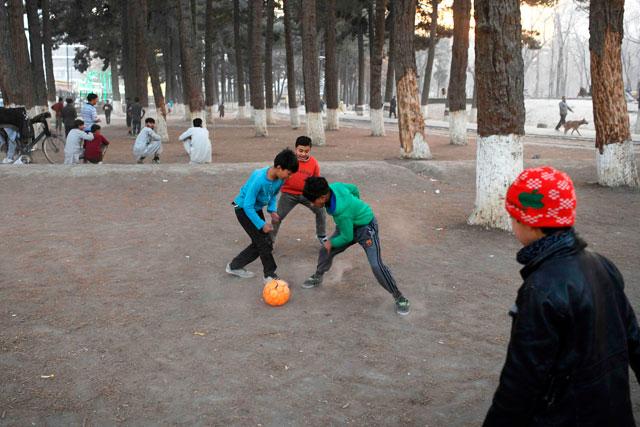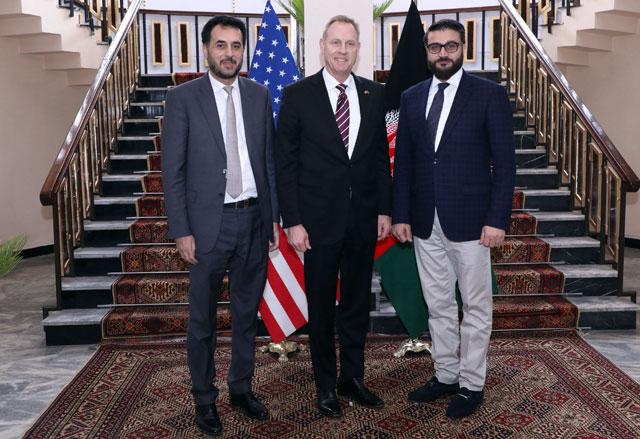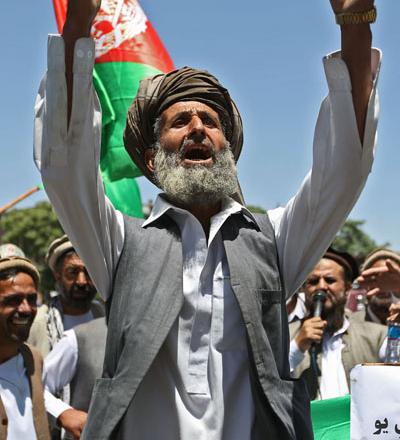You are here
Election crisis and rising war casualties add to Afghan woes
By AFP - Jul 09,2014 - Last updated at Jul 09,2014

KABUL — Fighting in Afghanistan is spreading into populated areas and taking a record toll on civilians, the UN warned Wednesday, as presidential candidates urged supporters not to raise tensions after the disputed election result.
Political deadlock and soaring civilian casualties have caused deep disquiet among Afghanistan’s international backers, who sent tens of thousands of NATO-led soldiers and billions of dollars in aid to the country after 2001.
Claims that a functioning state has replaced the harsh Taliban regime look to be in jeopardy after presidential candidate Abdullah Abdullah rejected the result of the June 14 run-off election, saying he was the victim of systematic fraud.
Security gains also appear fragile as the final 50,000 NATO troops end their combat mission by December, after 13 years of fighting that have failed decisively to defeat the Taliban insurgents.
Underlining the extent of the violence plaguing Afghanistan, a UN report revealed that civilian casualties of the conflict soared by 24 per cent in the first half of 2014.
Ground combat is now causing more deaths and injuries than improvised explosive devices in a worrying sign of spreading conflict.
“The nature of the conflict in Afghanistan is changing in 2014 with an escalation of ground engagements in civilian-populated areas,” warned Jan Kubis, chief of the UN mission chief in Afghanistan known as UNAMA.
“The impact on civilians, including the most vulnerable Afghans, is proving to be devastating.”
In the first six months of this year, UNAMA documented 4,853 civilian casualties — up 24 per cent on the same period in 2013.
The toll included 1,564 deaths and 3,289 injuries, with ground engagements causing two out of every five civilian casualties in 2014.
Fears that Afghanistan could see a return to the ethnic bloodshed of the 1992-1996 civil war have grown during the deepening election crisis.
Abdullah Abdullah, a former anti-Taliban resistance fighter, came second in preliminary results to Ashraf Ghani, but Abdullah said the election was fraudulent and he expected to become the next president.
Abdullah’s vote base is among the Tajiks and other northern Afghan groups, while Ghani attracts much of his support from the Pashtun tribes of the south and east — an ominous echo of the ethnic divisions of the civil war.
‘Disturbing spiral’
of violence
Afghan government forces face a demanding test in the coming years with declining assistance from the US-led military coalition that has trained and equipped them.
Recent weeks have seen fierce fighting in the southern province of Helmand, as the Afghan army and police counter-attack after an offensive by 800 Taliban fighters in an area from which US troops withdrew only in May.
On Wednesday 22 militants were shot dead after launching an attack on police headquarters and the provincial governor’s office in the southern city of Kandahar.
Five policemen and four civilians also died, the governor’s spokesman said.
“The fight is increasingly taking place in communities, public places and near the homes of ordinary Afghans, with death and injury to women and children in a continued disturbing upward spiral,” said Georgette Gagnon, director of human rights for UNAMA.
As anger among Abdullah’s supporters has increased over alleged election fraud, his campaign on Wednesday appealed for calm and said no street demonstrations should be held.
“We are calling for people not to protest and to wait for a few days to see what decisions are made,” a press official from Abdullah’s team told AFP.
Abdullah’s poll rival Ashraf Ghani, who says he won the election fairly, called for the election timetable to be respected.
The final result is due out around July 24 after adjudication of complaints and an anti-fraud audit.
US President Barack Obama stepped in to warn the two rivals against “resorting to violent or extra-constitutional means” — a response to reports that Abdullah planned to announce a parallel government.
“The United States expects a thorough review of all reasonable allegations of fraud to ensure a credible electoral process,” the White House said in a statement.
The UN has also called on both candidates to rein in their supporters, expressing concern that social media exchanges have fanned ethnic hatred.
Abdullah’s supporters took the street 10 days ago when reports emerged that Ghani was well ahead in the vote count, though protests have so far been peaceful.
President Hamid Karzai, who is constitutionally barred from a third term in office, has stayed publicly neutral in the lengthy election, but Abdullah supporters accuse him of fixing the vote in Ghani’s favour.
Related Articles
KABUL — More than 100,000 Afghan civilians have been killed or injured over the past decade, the United Nations reported Thursday, as it ren
KABUL — Acting Pentagon chief Patrick Shanahan arrived in Afghanistan on an unannounced visit on Monday as the United States leads a push fo
A top Afghan election official accused of fraud resigned Monday, raising hopes of ending a political deadlock that threatens to derail the country’s presidential succession as NATO troops withdraw.














